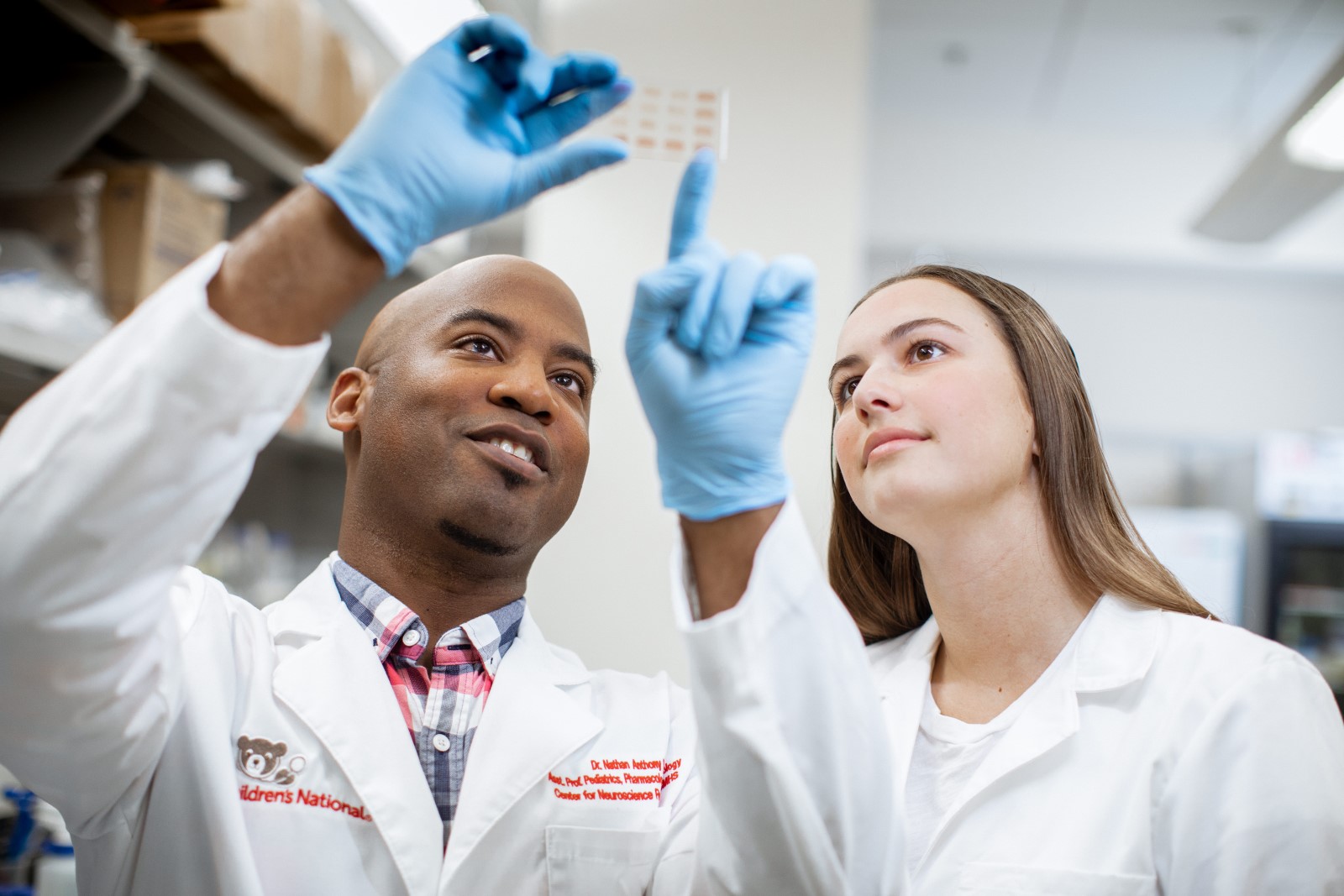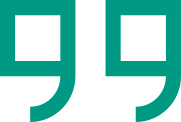Genetic Medicine – Juan Cabrera-Luque, PhD – $12,000
Continuation of Research on a Natural Anti-oxidant – Study to identify the best conditions for the synthesis of gamma-GC and determine the best separation method to be used in the purification of the synthesized gamma-GC. This gamma-GC that is synthesized will be used to further study the potential beneficial effects of increasing intracellular GSH levels where oxidative stress has a key role in disease process such as PKU, wound healing, etc.
Center for Neuroscience – Jessica Carpenter – $12,578
EEG Reading Station – Funding for the purchase and installation of an Electroencephalogram (EEG) review/ monitoring station in the Cardiac Intensive Care Unit. This equipment will allow real time neurological assessment of patients (identify seizures and changes in brain function often not visible to the naked eye) and allow for immediate adjustments in medications and treatments that will provide improved long term outcomes for these children.
Cardiology – Jessica Colyer, MD – $5,700
Provider Baseball Cards – Funding to produce 175 individually designed Provider Baseball Cards with the goal of improving provider/patient relationships and thus increasing patient satisfaction. Each Provider Baseball Card (the size of a business card) will provide patients and their families a photo and key information about their provider including a definition of roles (which tends to be confusing for families). The Cards will also have some personal information about the Provider, to help build a connection with patients and families.
Psychology – Angela Fletcher – $5,178
Biofeedback for Pediatric Migraines – Develop and implement a six-week mindfulness-based biofeedback program to reduce the stress and pain disability associated with pediatric migraines. Approximately six million children and adolescents suffer from migraines across the US and CNMC treats approximately 700 youth with chronic migraines every year. The Behavioral Pain Clinic does not currently have the resources to offer these innovative services, which could benefit these youth suffering from what can be extremely debilitating pain.
Infectious Diseases – Andrea Hahn – $7,434
Cystic Fibrosis Study of Airway Microbiome Diversity – In this study, an oropharyngeal swab will be obtained from 25 well CF patients and 50 healthy controls so that next generation sequencing can be performed to define the CF airway microbiome of each sample. Specifically, it could lead to treatment of otherwise undiagnosed lung infections and prevent the establishment of antibiotic resistant organisms such as pseudomonas aeruginosa in these young CF patients.
Neuroscience – Carrie Harris – $5,140
Backpack for Patients Undergoing an EEG Study – The Neuroscience department services over 2,000 children a year who require a video EEG study. These studies include placement of a piece of equipment between the patient and the EEG machine called a “head box”. The Neuroscience technicians have created an innovative approach to assisting these young patients who are extremely active and may refuse to be confined to one area with an appropriate size backpack to assist with the patient’s mobility, safety, and comfort. The grant would purchase the child-size backpacks necessary to implement this program.
Surgical Care – Erika Hilborn – $730
Ambulation Destinations – Provide the surgical care unit with a toddler “ambulation destination” in the hallway of that unit. This grant will provide for the purchase of an interactive toddler wall including wall toys and a fun house mirror to encourage the younger postoperative patients to walk around the halls and extend the length of time spent out of bed.
Neurosurgery – Robert Keating – $7,879
Multimedia Educational Series for Craniofacial Disorders –Record and produce a series of 3-to-5-minute videos describing the craniofacial journey, from diagnosis through surgery (or surgeries), to follow-up care. The surgeries comprise the most widely performed procedures by our craniofacial experts, and hastening the production of these videos will reach the widest audience among our patient population.
Gastroenterology – Muhammed Khan – $23,570
ScopeGuide for Colonoscopy Procedures – This grant funds the purchase and implementation of new technology for colonoscopy procedures. A ScopeGuide provides three-dimensional viewing of the colonoscope as it passes through the patient’s intestine, allowing significant benefits to the patient: reduced procedural and recovery time, less post-operative pain, reduction of complications or repeat procedures, and improved trainee proficiency.
Surgery – AeRang Kim, MD, PhD – $50,000
Novel Non-invasive Treatment for Neuroblastoma – This grant will allow our engineers at the Sheikh Zayed Institute to manufacture and create specialized ultrasound transducers that will be used for high frequency ultrasound, or HIFU, treatment of neuroblastoma. With this grant, our engineers will develop multiple transducers for children of different ages who present with neuroblastoma.
Trauma and Burn Services – Janice Lambrose – $4,394
Support for the Purple Crying Program – Child abuse and shaken baby syndrome are devastating and preventable. This grant will support the Period of Purple Crying® program for inpatient and outpatient units at Children’s National. Each family receives verbal instructions, which is then reinforced with a booklet. A smartphone application is also given to families to allow them to share the information with up to four additional caregivers, who care for the infant.
Cardiac ICU – Adam Lowry, MD – $34,082
Touchscreen Display to Accelerate Real-Time Clinical Decisions at the Bedside Using Predictive Analytics – CNMC through collaboration with a private risk analytics company, have developed a novel risk analytics platform called T3 to predict clinical deterioration, and recently this system obtained FDA approval for use in the clinical setting for infants after cardiac surgery. While the analytic component only applies to postoperative infant, the valuable data and trend display is applicable for use in all patients. This grant is intended to elevate patient care by improving access to vital sign trends and other metrics directly at the bedside by a dedicated touchscreen display at each patient’s bedside.
Critical Care – Vanessa Madrigal – $9,990
IPV Program – Purchase of two Metaneb units and accessories to provide Intrapulmonary Percussive Ventilation (IPV) – a technique that helps clear lung secretions for at-risk patients who may be physically unable to clear secretions on their own. The Metaneb delivers fast bursts of air directly into the airway and delivers mist to thin secretions, pop open the airways, ultimately allowing mucus to be coughed or suctioned easily.
Dermatology – Kalyani Marathe – $31,800
Phototherapy Unit – Purchase of a phototherapy unit for the treatment of many skin diseases including vitiligo, certain lymphomas, graft-versus-host disease (a complication of bone marrow transplantation), and many cases of severe childhood eczema and psoriasis.
Fetal Medicine – An Massaro – $9,303
HIE Study – In this study, 180 newborns with HIE recruited over a four year period at John Hopkins and Children’s National will be monitored for blood flow regulation for the first three days of life. Continuous BP monitoring readings in NICU’s will be input into NIRS monitors to predict blood flow to the brain and brain injury in HIE patients. This could result in improved outcomes in high-risk neonatal patients and provide means for brain protective standard of care.
Sheik Zayed Institute – Reza Monfaredi – $20,900
Pilot for Laryngoscope – Led by Dr. Monfaredi of the Sheik Zayed Institute, this BOV grant will fund the development of a novel portable autopilot video laryngoscope, and allow for testing the device in phantom studies. The first pilot test will be on anthropomorphic phantoms with anatomically correct structures in the 7-12 year old age range. Success of this device will lead to more successful intubation due to improved visualization, use by single practitioners in the field, and faster implementation.
Cardiology – Laura Olivieri – $25,000
3D Cardiac Printing Lab – This grant funds project to create a customizable, biocompatible, implantable and patient-specific connection for complex cardiac surgery using 3D printing to help optimize the results. . This project will create simulations of blood flow and hemodynamics using 3D digital heart models and innovative software programs to help surgeons decide the correct shape and size of the 3D printed Fontan connection.
Neonatology – Mary Revenis – $10,900
Length Boards – Research has determined that the accurate measurement of linear growth is a far better predictor of brain maturation and long- term neurocognitive development than weight growth alone. With accurate linear growth measurements the staff of doctors, nurses and dieticians will be able to make almost immediate changes in the dietary chemistry and thereby provide improved long term neurocognitive development.
Neonatal Neurology – Joseph Scafidi, DO, MS – $48,937
Study to Determine the Bioenergetic Requirements of Microglia in the Developing Brain – The two major outcomes from this study will be to: 1) gain an understanding of how microglia utilize energy; and 2) develop novel techniques that will enhance the research capabilities of Children’s Research Institute. The data obtained from this important study will be used for preliminary data to support a larger scale NIH funded research grant application in collaboration with other investigators at Children’s National already conducting research on microglia.
Cardiac Surgery – Panama Sinhala – $14,300
Study of Vitamin D and the Brain – The aim of this study is to study the effects of Vitamin D supplementation and deprivation to neurological injury after oxygen deprivation as seen in-patient with congenital heart disease during open-heart surgery.
Orthopedics and Sports Medicine – Laura Tosi – $34,042
Fracture Study Pilot – The Bone Health Program seeks to complete the funding needed to pay for testing for one of three planned cohorts in the Multiple Fractures in Childhood: Bad Luck or Bad Omen? Pilot study. Multiple fractures in childhood may not be “bad luck” but a bad omen, signaling increased risk for yet more injuries. Children who fracture bones may become adults who fracture bones and, thus, face significantly increased disability and illness, and even shorter lifespans as adults. Recognizing poor bone quality in children early in their lives and developing strategies for mitigating the risk factors for poor bone quality could significantly reduce future fractures and health care costs.
Volunteer Services – Fernanda Vessio – $20,000
Funding for Dr. Bear’s Closet – Funding from this grant will allow Volunteer Services to cover essential non-clinical patient and family services, consumable items (e.g. toiletries, clothing, toys, etc.), and equipment that significantly and positively impact those who visit Children’s National. By assisting patients and families with non-medical needs, such as hotel stays, clothing items, funeral assistance, and more, it will allow parents to redirect their attention and focus on their child and family during difficult times. These resources also help to provide comfort, offer distractions, and normalize the hospital setting for thousands of patients each year in play rooms, waiting rooms, inpatient units, ambulances, the Emergency Department, and Regional Outpatient Centers.
Autism – Eileen Walters – $3,389
Autism Behavioral Communication Support – The Autism Behavioral Communication Support Program(ABCs) will receive supplies and software to support ABCs. The ABC’s program was created to develop a protocol for the sensitive care of children with Autism and other exceptional behavioral and communication needs. The goal will be to provide assessment and support for children and caregivers in preparation for planned admissions, medical visits/procedures, and post-discharge follow up via individual patient sensory toolkits – given to providers, parents and the child’s school.
Total Awards – $397,068

Grants awarded by the Founders Auxiliary Board have inspired change and transformative advances in diverse areas of service throughout the hospital. Past awards have supported research, child wellness initiatives such as concussion prevention, immunizations, cutting-edge equipment and technology, pediatric surgical robots, professional development, and educational support.

